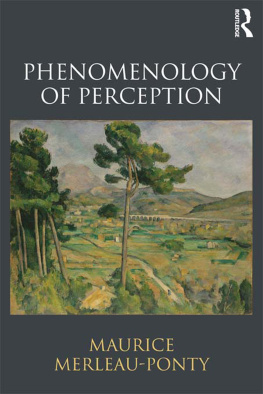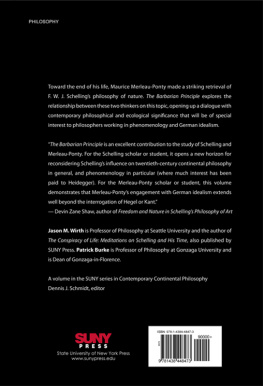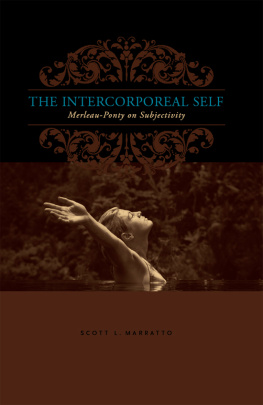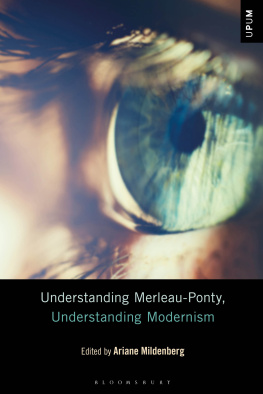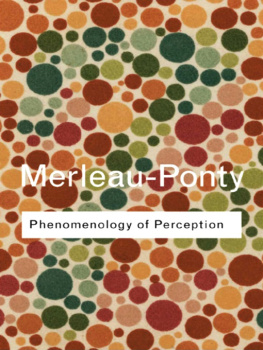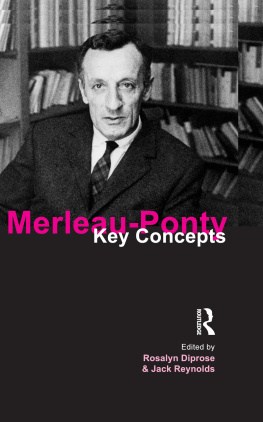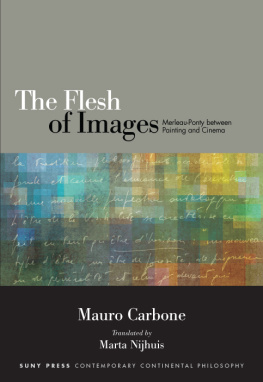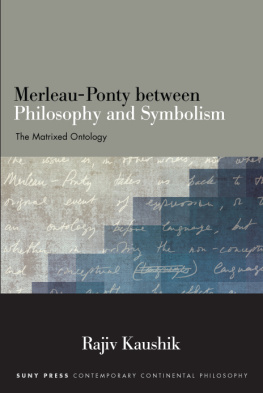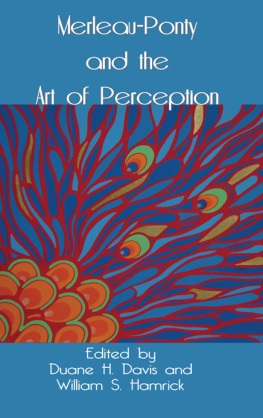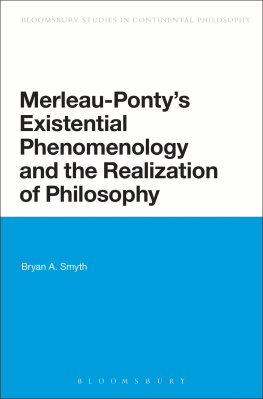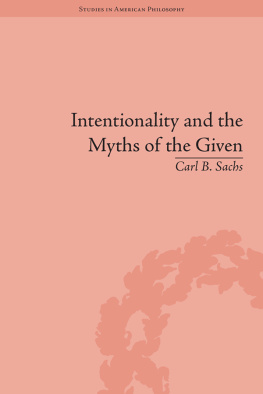Merleau-Ponty Maurice - Phenomenology of Perception
Here you can read online Merleau-Ponty Maurice - Phenomenology of Perception full text of the book (entire story) in english for free. Download pdf and epub, get meaning, cover and reviews about this ebook. City: Nevada, year: 2018, publisher: Routledge;Franklin Classics, genre: Science. Description of the work, (preface) as well as reviews are available. Best literature library LitArk.com created for fans of good reading and offers a wide selection of genres:
Romance novel
Science fiction
Adventure
Detective
Science
History
Home and family
Prose
Art
Politics
Computer
Non-fiction
Religion
Business
Children
Humor
Choose a favorite category and find really read worthwhile books. Enjoy immersion in the world of imagination, feel the emotions of the characters or learn something new for yourself, make an fascinating discovery.
- Book:Phenomenology of Perception
- Author:
- Publisher:Routledge;Franklin Classics
- Genre:
- Year:2018
- City:Nevada
- Rating:3 / 5
- Favourites:Add to favourites
- Your mark:
- 60
- 1
- 2
- 3
- 4
- 5
Phenomenology of Perception: summary, description and annotation
We offer to read an annotation, description, summary or preface (depends on what the author of the book "Phenomenology of Perception" wrote himself). If you haven't found the necessary information about the book — write in the comments, we will try to find it.
Phenomenology of Perception — read online for free the complete book (whole text) full work
Below is the text of the book, divided by pages. System saving the place of the last page read, allows you to conveniently read the book "Phenomenology of Perception" online for free, without having to search again every time where you left off. Put a bookmark, and you can go to the page where you finished reading at any time.
Font size:
Interval:
Bookmark:
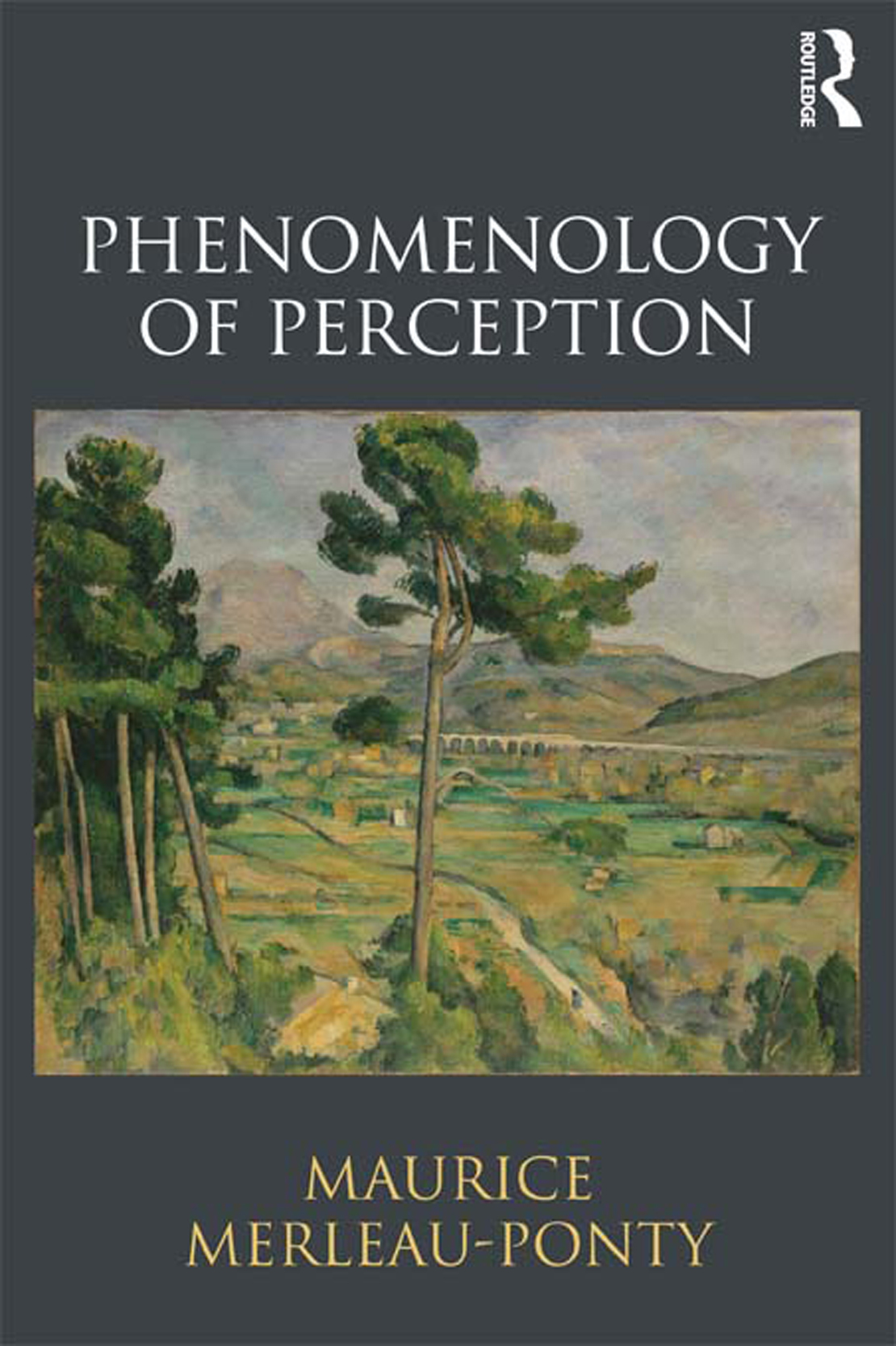
First published in 1945, Maurice Merleau-Pontys monumental Phnomnologie de la perception signaled the arrival of a major new philosophical and intellectual voice in post-war Europe. Breaking with the prevailing picture of existentialism and phenomenology at the time, it has become one of the landmark works of twentieth-century thought. This new translation, the first for over fifty years, makes this classic work of philosophy available to a new generation of readers.
Phenomenology of Perception stands in the great phenomenological tradition of Husserl, Heidegger, and Sartre. Yet Merleau-Pontys contribution is decisive, as he brings this tradition and other philosophical predecessors, particularly Descartes and Kant, to confront a neglected dimension of our experience: the lived body and the phenomenal world. Charting a bold course between the reductionism of science on the one hand and intellectualism on the other, Merleau-Ponty argues that we should regard the body not as a mere biological or physical unit, but as the body which structures ones situation and experience within the world.
Merleau-Ponty enriches his classic work with engaging studies of famous cases in the history of psychology and neurology as well as phenomena that continue to draw our attention, such as phantom limb syndrome, synesthesia, and hallucination.
This new translation includes many helpful features such as the reintroduction of Mer-leau-Pontys discursive Table of Contents as subtitles into the body of the text, a comprehensive Translators Introduction to its main themes, essential notes explaining key terms of translation, an extensive Index, and an important updating of Merleau-Pontys references to now available English translations.
Also included is a new Foreword by Taylor Carman and an introduction to Merleau-Ponty by Claude Lefort.
Translated by Donald A. Landes.
Maurice Merleau-Ponty was born in 1908 in Rochefort-sur-Mer, France. Drawn to philosophy from a young age, Merleau-Ponty would go on to study alongside Jean-Paul Sartre, Simone de Beauvoir, and Simone Weil at the famous cole Normale Suprieure. He completed a Docteur s lettres based on two dissertations, La structure du comportement (1942) and Phnomnologie de la perception (1945). After a brief post at the University of Lyon, Merleau-Ponty returned to Paris in 1949 when he was awarded the Chair of Psychology and Pedagogy at the Sorbonne. In 1952 he became the youngest philosopher ever appointed to the prestigious Chair of Philosophy at the Collge de France. He died suddenly of a stroke in 1961 aged fifty-three, at the height of his career. He is buried in Pre Lachaise Cemetery in Paris.
Praise for this new edition:
This is an extraordinary accomplishment that will doubtless produce new readers for the remarkable philosophy of Merleau-Ponty. This excellent translation opens up a new set of understandings of what Merleau-Ponty meant in his descriptions of the body, psychology, and the field of perception, and in this way promises to alter the horizon of Merleau-Ponty studies in the English language. The extensive index, the thoughtful annotation, and the guidance given about key problems of translation not only show us the richness of Merleau-Pontys language, but track the emergence of a new philosophical vocabulary. This translation gives us the text anew and will doubtless spur thoughtful new readings in English.
Judith Butler, University of California, Berkeley, USA
This lucid and compelling new translation not only brings one of the great breakthrough books in phenomenology back to life it gives to it an entirely new life. Readers will here find original insights on perception and the lived body that will change forever their understanding of themselves and the world they inhabit.
Edward S. Casey, Stony Brook University, USA
Review of the original French edition:
It is impossible to define an object in cutting it off from the subject through which and for which it is an object; and the subject reveals itself only through the objects in which it is engaged. Such an affirmation only makes the content of naive experience explicit, but it is rich in consequences. Only in taking it as a basis will one succeed in building an ethics to which man can totally and sincerely adhere. It is therefore of extreme importance to establish it solidly and to give back to man this childish audacity that years of verbal submission have taken away: the audacity to say: I am here. This is why Phenomenology of Perception by Maurice Merleau-Ponty is not only a remarkable specialist work but a book that is of interest to the whole of man and to every man; the human condition is at stake in this book.
Simone de Beauvoir, reviewing Phnomnologie de la perception
on publication in French in 1945
Translated by Donald A. Landes

This edition published 2012
by Routledge
2 Park Square, Milton Park, Abingdon, Oxon OX14 4RN
Simultaneously published in the USA and Canada
by Routledge
711 Third Avenue, New York, NY 10017
Routledge is an imprint of the Taylor & Francis Group, an informa business
Phenomenology of Perception, by Maurice Merleau-Ponty, originally published as Phnomnologie de la perception ditions GALLIMARD, Paris, 1945
Maurice Merleau-Ponty, by Claude Lefort, originally published in Histoire de la philosophie, III. Du XIXe sicle nos jours, Encyclopdie de la Pliade, 174, pp. 692706 ditions GALLIMARD, Paris, 1974.
English translation 2012 Routledge
Foreword 2012 Taylor Carman
Translators Introduction 2012 Donald A. Landes
All rights reserved. No part of this book may be reprinted or reproduced or
utilised in any form or by any electronic, mechanical, or other means, now
known or hereafter invented, including photocopying and recording, or in
any information storage or retrieval system, without permission in writing from the
publishers.
Trademark notice: Product or corporate names may be trademarks or registered trademarks, and are used only for identification and explanation without intent to infringe.
British Library Cataloguing in Publication Data
A catalogue record for this book is available from the British Library
Library of Congress Cataloging in Publication Data
Merleau-Ponty, Maurice, 19081961.
[Phnomnologie de la perception. English]
Phenomenology of perception / by Maurice Merleau-Ponty.
p. cm.
Translated by Donald A. Landes.
Includes bibliographical references (p. ) and index.
1. Phenomenology. 2. Perception (Philosophy) I. Landes, Donald A. II. Title.
B2430.M3763P4713 2011
142.7dc23
2011021920
ISBN: 9780415558693 (hbk)
Typeset in Joanna
By Swales & Willis Ltd, Exeter, Devon
Phenomenology of Perception by Maurice Merleau-Ponty,
translated by Donald A. Landes
Introduction: Classical Prejudices and the Return to
Phenomena
Phenomenology of Perception is one of the great texts of twentieth-century philosophy. Today, a half-century after his death, Merleau-Pontys ideas are enjoying a renaissance, attracting the renewed attention of scientists and scholars from a wide range of disciplines. Philosophers in the English-speaking world have over the last fifty years been slow to recognize the significance of his work, which resists easy classification and summary. He had little familiarity or contact with what by the 1950s had come to be called analytic philosophy, though his ideas speak directly to the theories of perception and mind that have grown out of that tradition. Nor was he a structuralist, though he saw sooner and more deeply than his contemporaries the importance of Saussurian linguistics and the anthropology of Claude Lvi-Strauss, whose good friend he was and remained until his death in 1961.
Font size:
Interval:
Bookmark:
Similar books «Phenomenology of Perception»
Look at similar books to Phenomenology of Perception. We have selected literature similar in name and meaning in the hope of providing readers with more options to find new, interesting, not yet read works.
Discussion, reviews of the book Phenomenology of Perception and just readers' own opinions. Leave your comments, write what you think about the work, its meaning or the main characters. Specify what exactly you liked and what you didn't like, and why you think so.

